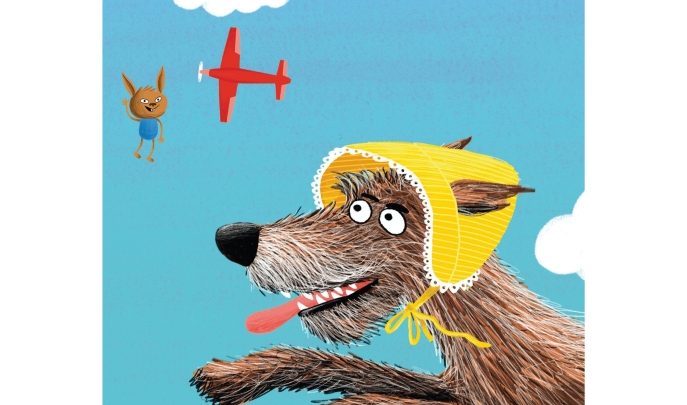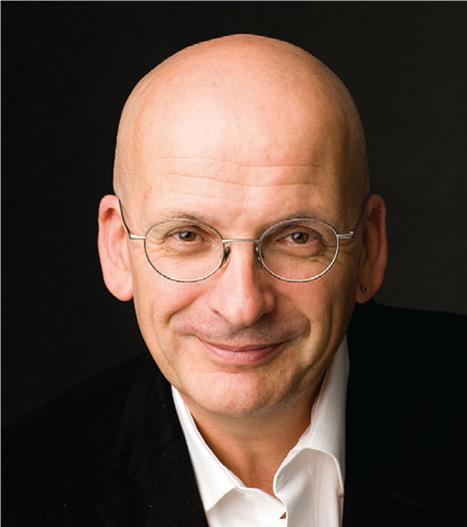Roddy Doyle: “You Don’t Need To Be A Fantastic Writer To Encourage Kids To Write”

Mistakes are a crucial part of the creative writing process, says Roddy Doyle – so why don’t we let children make them?

- by Roddy Doyle

It was 1963 when I started school, and I was five years old. I don’t know exactly how many kids were in my class, but it was huge – and as a relatively quiet child, it was easy for me to go unnoticed in the chaos.
After a while, though, my mother realised that I wasn’t learning to read there, and so she started teaching me herself, reading comic books with me at home. I recall very vividly sitting with her, moving my finger along underneath the words in The Beano or Sparky until finally, the speech bubbles started to make sense.
I was always a little late to pick up the basics; things like tying my laces and buttoning my coat didn’t come easily to me. I’m left-handed, too, which meant that learning to write was excruciating. I was very happy in school, and the teachers were lovely, but I suppose I was missing the fundamentals. If it had been 2013, with today’s class sizes, this would have been noticed of course, and no doubt there’d be a set of letters brought out to describe me. But I’m not curious at this point, and don’t think a label would be particularly useful now. I’ve managed pretty well without one so far.
I don’t want to be sentimental about it, but once I was able to read, there really was no stopping me. I became – and still am – a voracious reader, devouring anything I could get my hands on. I have two older sisters, so the house was full of Enid Blyton books; I ate up the Just William series, too. My father would bring me to the library every second weekend, and there always seemed to be something around that I could read and enjoy.
One book I really loved (and still have, actually) was Benjy, by a man called Edwin O’Connor, who would have been a big literary name at the time. It arrived in one of the boxes my uncle used to send us from America; my father would take the blade out of his razor to slice the boxes open. The story was about a spoilt little lad with an overbearing mother, and what I particularly remember is the way O’Connor seemed to suggest things that weren’t explicit in the text. For example, there’s a policeman who keeps coming to visit, and I got a definite sense that there was something funny going on between the cop and Benjy’s ma. I relished the sense that I was in on something, as the reader – like the author and I were sharing a secret.
Writing for children is a very different process from writing for adults. There’s a little bit of madness in most of the books I’ve written for kids – the Monty Python fan in me gets out, and it’s a chance for me to play with all those things that are constantly bubbling away in my sense of humour, but that I have to keep shoved down when I’m writing for grown ups. Interestingly, although I can spend all day working on a novel for adults, I can only spend a couple of hours at a time on a children’s book. I can’t sustain the style – or the craziness – for any longer.
With Fighting Words, the creative writing centre I set up in 2009, we are trying to make writing – the whole creative process – as inviting and open as possible. We want to encourage children to experiment, take risks, and change their minds. The way the education system is set up in Ireland at the moment, there’s no room for failure – yet for a writer, failure can be a good day’s work. Deleting passages can be a positive thing, for example, but because kids are being geared towards exams and taught by rote, there’s no space for them to learn this. And when you are writing something that has to be delivered quickly, grammar and punctuation become immediate concerns, when really, they shouldn’t matter until much later down the line.
The trouble with fitting creative writing into schools is that it’s not easy to measure; education seems to be all about assessment and comparison right now. When teachers see what happens with organisations like Fighting Words, and the Ministry of Stories, in London, they find it very reassuring. You don’t need to be a great writer to encourage kids to write well, just as you don’t need to be a fantastic footballer to coach a team. And when children start to write with confidence, you see facets of them that have been hidden before. It’s hugely enjoyable.











